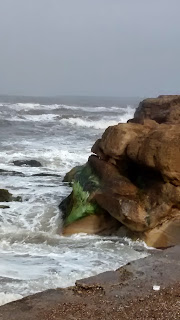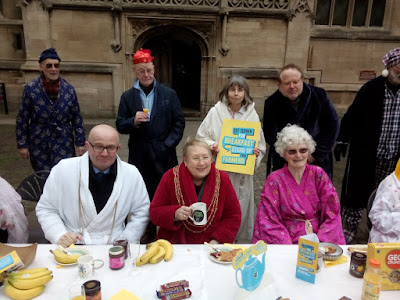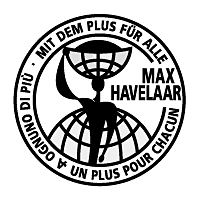 |
Waves crashing around the rocks at Amble.
Coquet Island is behind the rock |
My visit to Northumbria at the beginning of May was shaped by its connections to holy places and people that played a part in the history of how we came to know Christ in Britain. We stayed in a B&B with a view over the bay including Coquet Island, where Cuthbert once lived as a hermit until he was persuaded to become bishop of Lindisfarne. We walked along the bay to Alnmouth, where the ancient church in which Cuthbert was ordained bishop has now been washed away.
A highlight of the trip was a visit to the Franciscan friary at Alnmouth (which I had heard much about from friends who are members of the Third Order of Franciscans, following the way of St Francis in everyday life under vows but not in a residential community). We had tea and conversation with a range of people staying with the friars as a retreat house, before evening prayer filled us with a sense of peace and the presence of God.
St Cuthbert in particular resonates with me, and I read much about him before my birthday trip to Durham a few years ago to see the Lindisfarne gospels.
One place remains to be visited on another occasion: the holy island itself, perhaps next Easter with thousands of other pilgrims.





